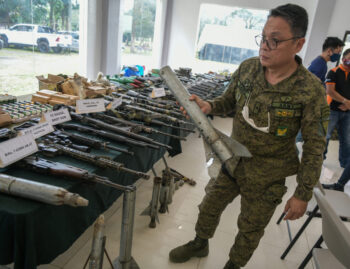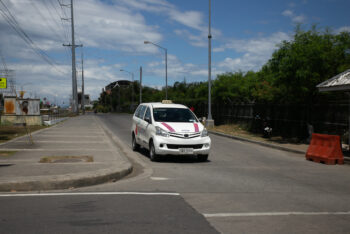MELBOURNE, Australia (MindaNews/ 31 August) – To attribute the shortfall of fish supply to the restriction of commercial fishing vessels from operating in municipal water is irrational and baseless. Such myopia and naiveté to come from authorities to secure the food supply of the country is unimaginable and puts us in a precarious course.
The DA-BFAR ought to review the findings and recommendations of the various research it has commissioned in the 90s and early 2000s – the resource and ecological assessments (REA) conducted in many of the country’s fishing grounds in order to have science-based evidence to back its policies on fisheries, such as the plan to open municipal waters to commercial fishing exploitation.
Consider this. The REA’s conducted by the researchers of the Mindanao State University at Naawan of Panguil Bay [1991,1996], Gingoog Bay [2001], Butuan Bay [2001], and Davao Gulf [1995] revealed that most if not all of the municipal fishing grounds, especially in smaller bays are over-fished; experienced unregulated exploitation arising from increasing number of fishers, the competition posed by commercial fishing boats operators in small fishers traditional fishing grounds; marine habitats wantonly damaged by destructive fishing methods and gears; weak law enforcement; plummeting fish catch and incomes and the grinding poverty of fishing folks; growing siltation of fishing grounds and incidences of mercury and other heavy metal pollution especially in Davao Gulf and Butuan Bay.
The truth is even with the prohibition under the Fisheries Code, RA 8550 as amended RA 10654, many commercial fishing boats intrude in municipal waters stealing the bounty reserved to local small and sustenance fishers and damaging the marine habitats with their destructive fishing methods and gears. This is occurring in the absence of an effective and efficient enforcement system and, in some instances, in connivance and tolerance of concerned local government units.
To legally allow commercial exploitation in municipal waters will open the flood gate of impunity and magnify the problems besetting coastal fisheries. For instance, the employ of trawls or dragnets, Danish purse seine, Muro Ami by commercial fishers will ultimately destroy the coastal fishing grounds and totally deprive the fisherfolk of their source of livelihood and means to live.
This will worsen the plight of the municipal fishers throughout the country. This is unfortunate because the coastal areas are slowly recovering resulting from the convergence of interventions over the years coming from the DA-BFAR itself, research institutions, civil societies, and the local government units and the coastal communities.
The institution of closed and open season for certain fisheries; the establishment of marine protected areas [MPAs] or fish sanctuaries, the organization and participation of coastal communities in coastal resource management and protection inactive partnership with the LGUs, the creation of land-based livelihood opportunities, have gone a long way in stock replenishment and recovery, habitat restoration, and trust and confidence building among local stakeholders.
It is needless to say that to allow commercial fishing in municipal waters will nullify the hard-earned gains in coastal resource management institutionally driven by the two leading agencies of the government themselves – the Department of Agriculture and the Department of Environment and Natural Resources.
The long-term solution to the shortfall of fish is not to allow commercial fishers to exploit the municipal waters but to effectively protect the waters from them, from their rapacious maneuvers. And to assert the country’s rights and protect its marine resources in south West Philippine Sea where the bulk of our round scad (galunggong)- the staple fish in Metro Manila- supply traditionally comes. (MindaViews is the opinion section of MindaNews. William R. Adan, Ph.D., is retired professor and former chancellor of Mindanao State University at Naawan, Misamis Oriental, Philippines.)







